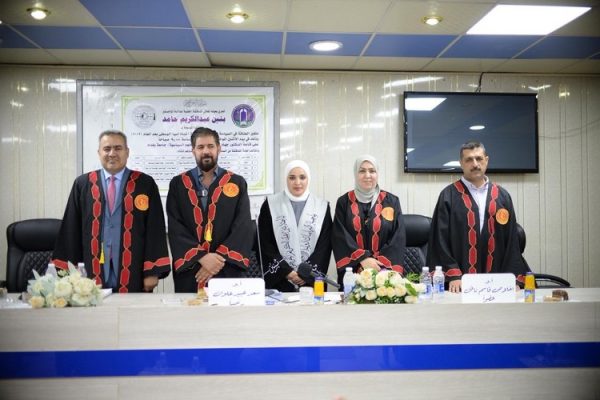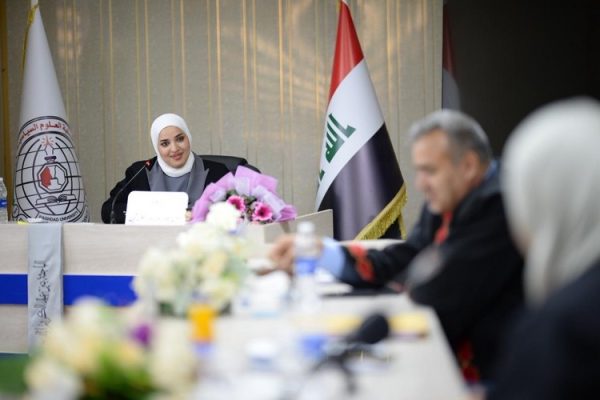The College of Political Science at the University of Baghdad convened an academic discussion on Monday, the 27th of October 2025, for the master’s thesis submitted by the graduate student Banin Abdulkareem Hamed on “The Energy Variable in Turkish Foreign Policy Toward Central Asia Post-2002.”
The session took place in the Dr. Jihad Al-Hassani Hall at the college.
The study has substantial implications for elucidating the energy variable’s pivotal role in shaping the Turkish foreign policy trajectory in the post-2002 landscape. The researcher meticulously focused on Turkey’s geostrategic position within the regional and global energy frameworks, while also explicating its strategic utilization of oil and gas reserves in the Central Asian republics, to enhance its standing in Europe.
The thesis findings underscore that energy emerges as a central and crucial factor in shaping the course of Turkish foreign policy, despite regional and international challenges. Explicitly, the study underscores Ankara’s efforts to diminish its reliance on Russian energy sources by seeking alternatives from Central Asian states.
The examination committee was composed of the following esteemed faculty members:
– Professor Dr. Saad Ubaid Alwan – Chair
– Professor Dr. Muneam Khamees Mikhlif – Member
– Professor Dr. Ikhlas Qasim Nafil – Member
– Professor Dr. Faiq Hassan Jasim – Supervisor
This research intrinsically aligns with the United Nations’ scope and objectives outlined in the 2030 Sustainable Development Agenda, in particular Goal 7: Affordable and Clean Energy. The study delineates how the energy variable serves not only as a centerpiece in Turkey’s strategic foreign policy trajectory toward the Central Asian republics, but also contributes to understanding pathways for achieving energy security and diversification, thereby supporting Goal 9 on infrastructure and innovation, and Goal 13 on climate action.
Following a comprehensive academic discussion, the committee awarded the student a grade of “Very Good” for her thesis.











